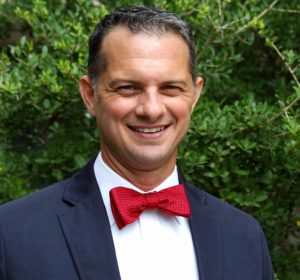It takes a lot of guts and humility to be vulnerable. Just look at the New Testament account of Jesus washing the disciples’ feet, Mary Alice Birdwhistell said.
“Since feet were the primary mode of transportation, think how dirty they would be and how vulnerable that position would be,” said Birdwhistell, associate pastor of Calvary Baptist Church in Waco, Texas.
It’s an uncomfortable feeling Birdwhistell said she can identify with.
“I usually get a pedicure before Maundy Thursday,” she said.
Birdwhistell and Baylor University’s Jon Singletary took on the potentially scary topic of vulnerability as a path to intimacy — and hence to compassionate pastoral leadership — in a workshop at June’s CBF General Assembly in Greensboro, N.C.
“Leading Our Faith Communities with Courage and Vulnerability” drew about 15 pastoral counselors, chaplains and pastors interested in learning about, and supporting each other through, the risky business of personal and spiritual openness.
“It’s scary to put yourself out there when you don’t know how that’s going to be received,” Birdwhistell said.
How to create relationships
The concept for the workshop was partly inspired by a book study at Calvary that delved into Rising Strong by Brene Brown, an expert on vulnerability.
“We are learning we are one of many churches doing book studies about her writings,” said Singletary, dean of the Diana R. Garland School of Social Work at Baylor.
Like that burgeoning movement, the CBF workshop inspired a conversation about how ministers can be open about their weaknesses and struggles as a way to inspire others to do the same, said Singletary, who is a Calvary member.
There is a growing demand for authenticity in those settings, he said, and a lot of people nowadays are turned off by ministers who present an air of distance and perfection.
And there are a lot of pastors who yearn for a deeper connection with the people they lead, Singletary added.
“What pastors want for themselves and what they struggle with is how to create relationships” with people in their churches, he said.
“There is a lot of talk in churches about community and community building and how to foster relationships that create community.”
Yet, Singletary noted that many pastors refuse to develop relationships with church members, while others go back-and-forth between intimacy and security.
But pastors and churches are increasingly being pushed to try, he said. Young ministers are being urged “to let your focus be on what’s real in life and for you and the people you serve.
Efforts can backfire, but worthwhile
That pressure for vulnerability is coming in large part from Millennials, said Birdwhistell, who is a member of that generation.
There is a demand among many Millennials for authenticity in what they see and hear at church.
“Something that’s important to me is that I am the same person when I am preaching that I am sitting in a coffee shop having a conversation with you,” she said.
And whatever the generation, “being real” with people is important for ministers because it’s a vital component of providing pastoral care, Birdwhistell said.
It’s also important to know that openness doesn’t mean sharing every fear or intimate detail with a congregation, she said. It’s important to sift those kinds of personal facts through a mentor, counselor or trusted friend before making them public.
Ministers also must know that efforts at authenticity can backfire.
But it’s worth it to try.
“If we want people to know we are real about our faith in Christ, they have to know what it looks like when we fall short,” she said.




